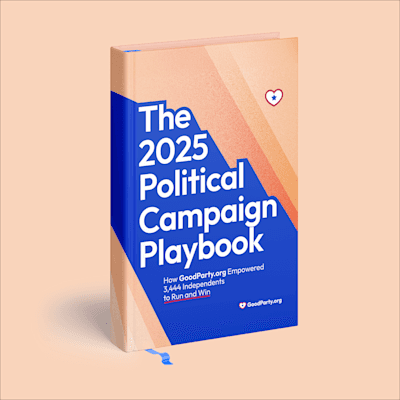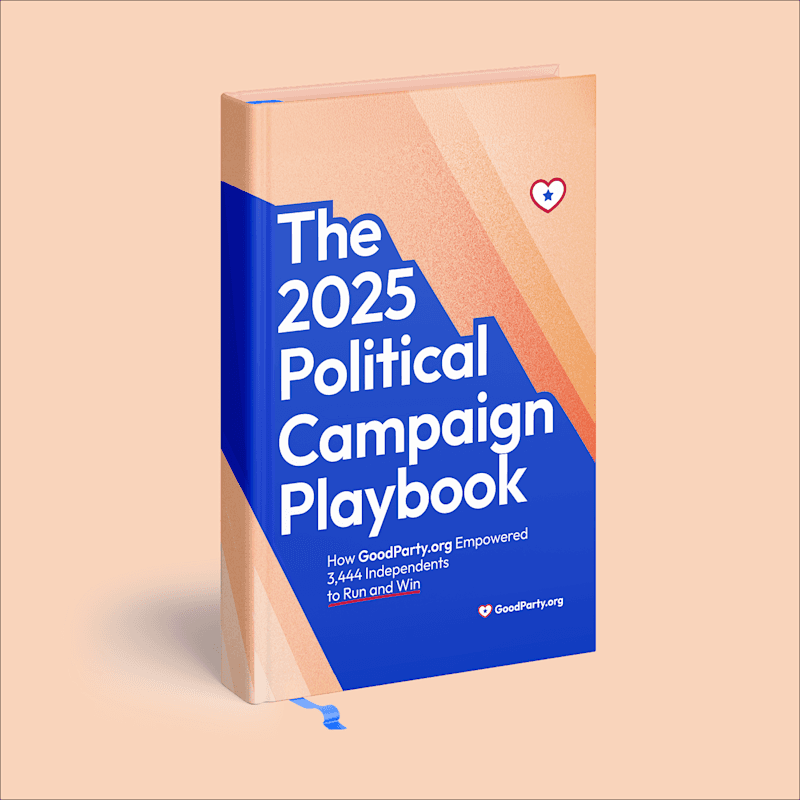
What is the “Spoiler Effect,” Really?
“Every citizen of this country should be guaranteed that their vote matters, that their vote is counted, and that in the voting booth, their vote has as much weight as that of any CEO, any member of Congress, and any president.” ~ Barbara Boxer, U.S. Senator, 1993 - 2017
Imagine a general election where there are two candidates with similar ideologies, but who may differ in fundamentals about how to achieve their policy goals. One is from an establishment party and the other is running as an independent. The opposition is a third candidate, usually from the other major party, who couldn't be further apart from the other two in terms of ideological stance, style, and policy.
The majority of voters align with candidates A or B, but the vote is split almost evenly between them. The result is that Candidate C, the opposition, wins with a slim majority of the vote despite having far less support among the majority of voters.
This type of vote splitting is the spoiler effect in action and, right or wrong, it has been blamed for election losses that conventional wisdom considered a slam dunk. For example, the candidacy of Ralph Nader for the Green Party is considered one of the reasons for Al Gore’s loss in the 2000 presidential elections.
But, more on that later.
The "Spoiler Effect'' is a phenomenon in electoral politics, especially in systems using the First-Past-the-Post (FPTP) voting method. It occurs when a candidate, often one with a perceived lower chance of winning, draws votes from a major party candidate with similar ideologies or policies. This often results in vote splitting and potentially leads to the election of a candidate from the opposing major party.
The spoiler effect is significant because it can influence the outcome of an election in a way that doesn't accurately reflect the majority's preferences.
Understanding the Spoiler Effect
The spoiler effect is rooted in the mechanics of FPTP voting. In this system, the candidate with the most votes wins, even if they don't have an absolute majority. When two candidates with similar platforms run, they can split the vote, allowing a third candidate, often one with a contrasting viewpoint, to win with less than a majority of the total votes.
As we’ll see, the matter becomes more complicated when you also factor in the Electoral College.
Historical Examples of the Spoiler Effect in U.S. Elections
One of the most cited examples of the spoiler effect in the United States is the 2000 presidential election. In this case, there were actually two “spoilers.” One was Pat Buchanan, who was running under the banner of the Reform Party. The other was Ralph Nader, who was running as the Green Party candidate.
Although Buchanan only got 0.4% of the popular vote, it was felt that his candidacy complicated matters on the ballot in Florida, which was a swing state at the time, and which only went to George Bush after the Supreme Court halted the vote count.
However, the wrath of those in the establishment party that lost the election was reserved for Nader, who garnered only 3% of the vote. In the end, the race was so close that it was believed this tiny percentage cost Gore the presidency in key states where Electoral College votes were in play.
Similarly, the 1992 presidential election saw Ross Perot running as an independent. Perot won 19% of the popular vote. His ideology and policy positions were believed to draw support away from the sitting president, George H.W. Bush. Many believe this influenced the outcome in favor of Bill Clinton over the incumbent, who normally would have had an advantage in elections.
More recently, the 2016 presidential elections featured two of the most historically unpopular establishment party candidates, Hillary Clinton and Donald Trump. Although Clinton was heavily favored to win, the election ultimately went to Trump. Clinton supporters still alternately blame supporters of Bernie Sanders, who withdrew from the race, and Jill Stein, who ran as the Green Party candidate, for her loss.
International Perspectives on the Spoiler Effect
The spoiler effect is not unique to the United States. For example, in the United Kingdom's 2010 general election, the Liberal Democrats arguably split the vote with the Labour Party, aiding the Conservative Party's rise to power. In the aftermath, a negotiated coalition between the two leftist parties failed, and the Liberal Democrats formed a coalition with the Conservative Party. This made Liberal Democrat leader, Nick Clegg, Deputy Prime Minister.
However, the spoiler effect is less of a factor in multi-party political systems, where the standard procedure is for minor parties to form coalitions in order to have more of an impact in governing.
Election Systems and the Spoiler Effect
The prevalence of the spoiler effect is closely tied to the election system in place. Plurality voting systems like FPTP are particularly susceptible to this phenomenon. In contrast, proportional representation systems, used in many European countries, tend to minimize the spoiler effect by allocating seats based on the percentage of votes each party receives.
The spoiler effect is not only a factor in national elections. There are cases where the spoiler effect is raised in local and state races, even in a ranked choice voting system. This happened during the 2009 mayoral race in Burlington, Vermont, and in the 2022 gubernatorial runoff in Alaska.
However, both cases simply came down to voter preference rather than a split along ideological lines between candidates. The ultimate winners in each election had the majority of the vote, while the clear second choice was consistently ranked higher than the candidate who didn’t make it to the runoff. In the case of the Alaska gubernatorial race, Sarah Palin was called a spoiler and blamed for taking votes from Nick Begich.
Strategies to Minimize the Spoiler Effect
The problem with the spoiler effect isn’t that voters might have too many similar candidates to choose from. The real issue is with an electoral system that limits voter choice and prevents good candidates from having a fair shot at winning their elections.
This system also demonizes voters who want to break away from the two-party, winner-take-all dynamic and vote for candidates who more closely align with their values.
There are a few ways that voter choice can be preserved while minimizing the spoiler effect in elections:
Adopting Alternative Voting Systems: Replacing FPTP with systems like Ranked Choice Voting (RCV) or Instant-Runoff Voting (IRV) can significantly reduce the spoiler effect. In these systems, voters rank candidates in order of preference. If no candidate achieves a majority, the least popular candidate is eliminated, and votes are redistributed based on second preferences, and so on, until a candidate achieves a majority of the vote.
Forging Electoral Alliances: Parties or candidates with similar ideologies can form alliances, agreeing not to run against each other to avoid vote splitting. This strategy, however, may limit voter choice.
Creating Voter Education Campaigns: Educating voters about the implications of their choices in a FPTP system can also help. By understanding the potential outcomes, voters might be more strategic in their decisions.
Implementing Political Reforms: Advocating for political reforms to introduce more representative systems can be a long-term solution to the spoiler effect. This requires political will and public support.
Final Thoughts
The spoiler effect is a significant issue in electoral politics, especially in systems that employ FPTP voting. It can distort electoral outcomes, often leading to a winner who does not represent the majority's preferences.
In order to foster a more representative democracy, it's crucial to explore and implement alternative voting systems, educate the electorate, and possibly reconsider the structure of political competitions. While these changes are challenging, they are essential for a democracy that truly reflects the will of the people.
The Clear Choice Is Electoral Reform
Whatever your ideology or political preferences, most of us can agree that our current system leaves us little beyond two bad choices in election after election. The best way to transform a political system is to initiate change from the bottom up.
GoodParty.org is a political movement that’s on a mission to transform our political system into one that works for all of us. The best way to achieve that is to support independent candidates who can push for electoral reform.
The establishment has a vested interest in keeping the status quo intact. Join us in our mission to break their stranglehold on our democracy!

